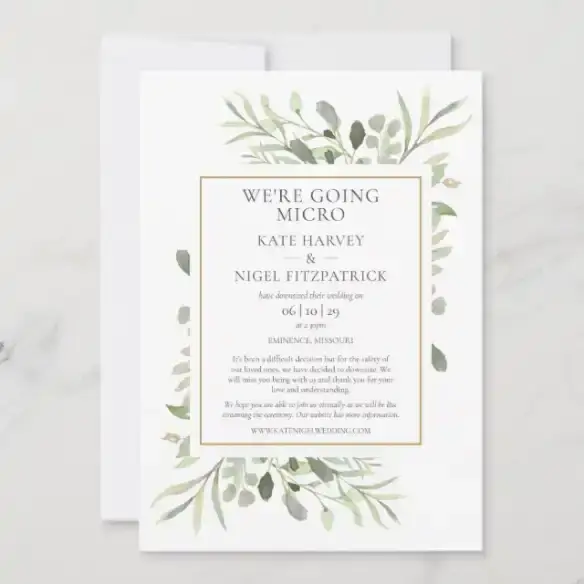Many couples are torn whether to have a big wedding due to the enormous amount of planning and investment. In this case, a micro wedding may be more suitable.
Having a big wedding is a must-do for couples whose families are more traditional. However, with that big wedding comes hundreds of guests, an elaborate venue, and a budget to match. But less traditional couples may not want or need such a big wedding. For couples who prefer a more meaningful and personal wedding experience, a smaller wedding is more of their style.
Continue reading for things to know about what micro weddings are, and the pros and cons of having one.
What Is A Micro Wedding?
A micro wedding is a more cozy event that generally has fewer than 50 guests in attendance. Different from traditional weddings that includes hundreds of guests, this type of wedding is more focused on the couple and their closest friends and family in an intimate atmosphere.
Pros Of Having A Micro Wedding
Reduced Stress
Because smaller weddings require less planning and coordination than larger wedding, it reduces stress on both the bride and groom. As a result, they are better able to focus on each other and their loved ones.
Flexibility
Since there are few guests, couples have more flexibility to tailor their wedding experience, including unique venues, to their preferences. Not only does this make the wedding feel more special, but also more personalized.
Cost Effective
Weddings on a smaller scale are generally less expensive than traditional weddings. Mostly because they require few resources, such as venue space, catering, and decor. Couples can save money as well as avoid going into debt.
Intimacy
An intimate wedding allows couples to spend quality time with their closest friends and family in a more personable setting. In addition to making the wedding more meaningful, it’s also more personal.
Cons Of Having A Micro Wedding
Still Requires Planning
Although small weddings may require less planning than larger weddings, they still require attention detail. Consequently, couples need to enlist the help of trusted family members or friends, and plan ahead. Otherwise, without planning, you can still run into issues, just on a smaller scale.
Less Social Interaction
With a smaller group, there will be less opportunities for networking and social interactions. While larger weddings are great for meeting new people, smaller weddings can be more insular. As such, it may not be ideal for those who enjoy meeting new people and socializing.
Limited Venue Options
Smaller weddings may not be as attractive to some vendors, such as musicians, photographers, or caterers, who may prefer larger events with bigger budgets. In essence, this may make it more difficult to find the right vendors who are willing to work with smaller weddings.
Restricted Guest List
Having a smaller wedding means that some friends and family may not be able to attend. Ultimately, this could lead to hurt feelings or strained relationships. Couples should carefully consider who to invite and communicate openly with those who may not be included in the guest list.
Albeit a smaller wedding, you can create a memorable and beautiful experience that reflects your preferences and personalities.
You may also enjoy reading: How To Use Digital Promotion For Business



